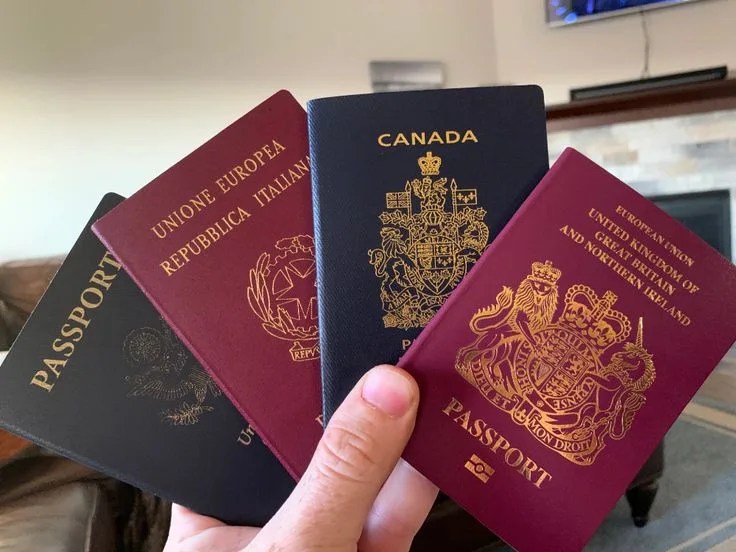When you’re thinking about moving to a new country, two big questions often pop up: Should I aim for permanent residency or go all the way to citizenship? They might seem similar, but they come with very different rights, responsibilities, and benefits.
Let’s break down what each means, how they differ, and help you figure out which one might be the best fit for your goals.
Table of Contents
- What Is Permanent Residency?
- What Is Citizenship?
- How Do You Get Permanent Residency?
- How Do You Become a Citizen?
- Which One Should You Aim For?
- Advantages of Permanent Residency
- Advantages of Citizenship
- Potential Drawbacks
- Can You Have Both?
- Common Myths About PR and Citizenship
- Things to Consider Before Deciding
- Steps to Take If You Want Citizenship
- Conclusion
What Is Permanent Residency?
Permanent residency (PR) means you have the legal right to live and work in a country indefinitely, but you’re not yet a full citizen. Think of it as a long-term visa with some serious perks but some limits too.

Key Features of Permanent Residency:
- You can live, work, and study in the country without restrictions.
- You usually have access to social services and healthcare.
- You don’t have the right to vote in national elections.
- You might have travel restrictions, like needing to maintain physical presence.
- Your PR status can be revoked if you commit serious crimes or violate residency rules.
What Is Citizenship?
Citizenship means you are a full member of the country, with all rights and responsibilities that come with it — kind of like having a full VIP pass.
Key Features of Citizenship:
- You have the right to vote and run for public office.
- You get a passport of that country, often with visa-free travel perks.
- You can access all social and government benefits.
- You’re subject to the country’s laws and can be called for jury duty or military service in some places.
- Citizenship is usually permanent and can’t be revoked easily.

How Do You Get Permanent Residency?
PR requirements vary by country but often include:
- A certain period of legal residence (usually 2-5 years)
- Proof of employment or income
- Clean criminal record
- Language proficiency tests in some countries
- Passing medical exams
How Do You Become a Citizen?
Usually, citizenship requires:
- First having permanent residency for a set time
- Passing a citizenship test on language, history, and culture
- Demonstrating integration into society
- Taking an oath of allegiance

Which One Should You Aim For?
When Permanent Residency Is Enough
- You want to live and work without fully committing.
- You’re unsure about staying long-term or want flexibility.
- You don’t want the responsibilities of citizenship like voting or taxes.
When Citizenship Makes Sense
- You want full political rights like voting and running for office.
- You want to travel with a new passport.
- You plan to stay permanently and want full legal protections.
Advantages of Permanent Residency
- Less complex and faster to obtain than citizenship.
- You can maintain citizenship of your home country.
- You retain the option to apply for citizenship later.

Advantages of Citizenship
- Full political and legal rights.
- Stronger protection against deportation.
- Access to better employment opportunities in government sectors.
Potential Drawbacks
Permanent Residency Drawbacks
- You may lose PR status if you spend too much time outside the country.
- Limited access to some social or political rights.
Citizenship Drawbacks
- Some countries don’t allow dual citizenship, meaning you may lose your original nationality.
- There may be extra tax responsibilities.

Can You Have Both?
Technically, yes. Many immigrants first get PR and then apply for citizenship once eligible. This step-by-step approach is common and recommended to ensure you meet all requirements.
Common Myths About PR and Citizenship
- Myth: PR means you’re a citizen — False! PR is different from citizenship.
- Myth: Citizenship is automatic after living there — False! You must apply and qualify.
- Myth: You lose your home country citizenship — Depends on the laws of your home country.
Things to Consider Before Deciding
- What are your long-term goals?
- Does your home country allow dual citizenship?
- Are you ready for the responsibilities citizenship brings?
- How important are voting rights to you?
- What travel freedoms do you want?
Steps to Take If You Want Citizenship
- Obtain and maintain permanent residency.
- Fulfill residency requirements (usually 3-5 years).
- Prepare for and pass the citizenship test.
- Complete the application and attend the oath ceremony.

Conclusion
Permanent residency and citizenship are both valuable but serve different purposes. Understanding the benefits and responsibilities of each helps you make the right choice for your future. Whether you want the flexibility of PR or the full rights of citizenship, being informed means you’re one step closer to making your dream move a reality.

1. Can permanent residents vote in local elections?
It depends on the country; some allow limited local voting rights.
2. Is it harder to lose citizenship or permanent residency?
Permanent residency can be lost more easily due to absence or criminal activity.
3. Can I have dual citizenship?
That depends on the laws of your home country and the country where you seek citizenship.
4. How long does citizenship application take?
Processing times vary widely but typically take several months to a few years.
5. Do citizens pay more taxes than permanent residents?
Often, citizens may have additional tax obligations, depending on the country.



